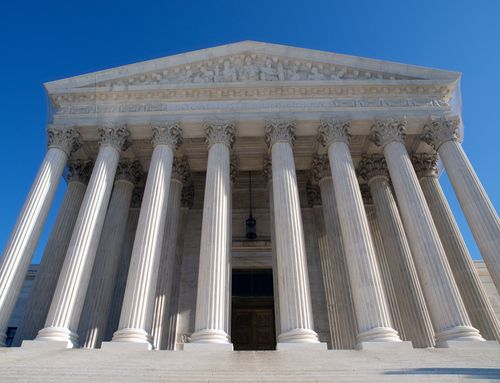Top Class Actions’s website and social media posts use affiliate links. If you make a purchase using such links, we may receive a commission, but it will not result in any additional charges to you. Please review our Affiliate Link Disclosure for more information.

Writing for a unanimous court, Justice Ruth Bader Ginsburg concluded that the court rule limiting time extensions for filing a notice of appeal is not jurisdictional. A longer extension therefore does not deprive the appeals court of jurisdiction over the appeal.
Appellant Charmaine Hamer brought this appeal after a mid-level appeals court declined to hear her appeal of an adverse ruling in an age and gender discrimination lawsuit.
Hamer accused her former employers, defendants Neighborhood Housing Services of Chicago Inc. and Fannie Mae, of denying her a promotion and forcing her to resign because of her age and gender.
The issue on appeal originated after U.S. District Judge Ruben Castillo entered judgment in favor of the defendants in September 2015. Judge Castillo found the former employers cited valid reasons to deny Hamer her promotion, reasons that were not pretextual covers for discrimination. According to the defendants, Hamer was late for work on a regular basis, was less productive than the person who was awarded the promotion, and was frequently disrespectful.
After final judgment was entered, Hamer sought to appeal certain issues addressed by the trial court. But due to a disagreement over litigation strategy, her attorneys asked Judge Castillo to let them withdraw from representing her.
Judge Castillo granted that request and at the same time gave Hamer a two-month extension on her deadline for filing a notice of appeal – an extension twice as long as that provided for by federal appellate procedural rules.
Hamer filed her notice of appeal three days before the extended deadline. The Seventh Circuit Court of Appeals noticed the extension and asked the parties to brief the issue of whether Hamer’s notice of appeal was truly timely.
The circuit court ultimately concluded that the 30-day limit in the procedural rules was jurisdictional. Since that period had expired, the court said, it no longer had jurisdiction to hear Hamer’s appeal.
On appeal to the Supreme Court, Hamer’s attorney argued that the 30-day limit does not restrict the trial court’s authority to grant a party even more time, as long as the party files a timely motion for an extension and makes a showing of excusable neglect or good cause.
Justice Ginsburg explained that the Seventh Circuit, as well as other circuit courts that have faced the same issue, misconstrued a 2007 Supreme Court opinion describing the duty to take an appeal within the prescribed time as “mandatory and jurisdictional.”
In that case, Bowles v. Russell, the deadline was truly jurisdictional because it was a statutory requirement imposed by Congress, Justice Ginsburg said. The rule in Hamer’s case does not have the same effect, she said, since it is a claim-processing rule created by the federal court system for its own use.
Justice Ginsburg noted that the Court reached its conclusion without touching on several other issues, such as whether the defendants should have raised the timeliness issue at the trial court level, or whether the defendants should have filed their own notice of appeal to have the timeliness issue reviewed.
The case now goes back to the Seventh Circuit for reconsideration in light of the Supreme Court’s opinion.
Hamer is represented by attorney Jonathan A. Herstoff of Haug Partners LLP.
The Notice of Appeal Deadline Extension Lawsuit is Hamer v. Neighborhood Housing et al., Case No. 16-658, in the Supreme Court of the United States.
ATTORNEY ADVERTISING
Top Class Actions is a Proud Member of the American Bar Association
LEGAL INFORMATION IS NOT LEGAL ADVICE
Top Class Actions Legal Statement
©2008 – 2024 Top Class Actions® LLC
Various Trademarks held by their respective owners
This website is not intended for viewing or usage by European Union citizens.














